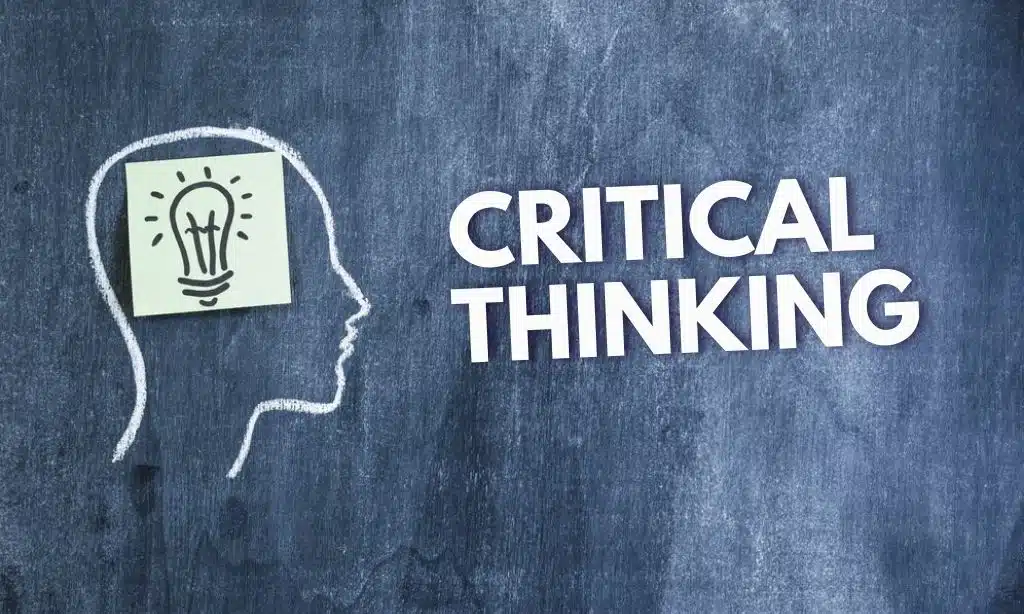In today’s fast-paced and ever-evolving job market, having a competitive edge is more critical than ever. While traditional skills and qualifications remain valuable, employers increasingly seek candidates with creative abilities that can drive innovation and problem-solving.
These creative skills make you stand out in a crowded job market and enhance your ability to adapt to new challenges and contribute unique solutions in any field.
This article will explore 20 creative skills that can give you a significant advantage in your personal and professional life. We’ll delve into each skill, explaining its importance, how to develop it, and its practical applications in various industries.
Whether you’re a recent graduate, a mid-career professional looking to upskill, or an entrepreneur seeking to enhance your business acumen, these creative skills will prove invaluable in today’s competitive landscape.
Let’s dive into the 20 creative skills that can set you apart and propel your career to new heights.
1. Design Thinking
Design thinking is a problem-solving approach that emphasizes empathy, creativity, and iterative solutions. It’s a skill that has gained significant traction in recent years across various industries.
Critical aspects of design thinking:
- Empathize: Understand the user’s needs and experiences
- Define: Clearly articulate the problem to be solved
- Ideate: Generate a wide range of creative solutions
- Prototype: Create quick, low-fidelity versions of potential solutions
- Test: Gather feedback and refine the solution
Why it’s important:
- Encourages innovative problem-solving
- Puts the user at the center of the solution
- Promotes collaboration and cross-functional thinking
How to develop this skill:
- Take online courses in design thinking methodologies
- Practice applying the design thinking process to everyday problems
- Participate in design thinking workshops or hackathons
Real-world applications:
- Product development in tech companies
- Service design in hospitality industries
- Urban planning and architecture
- Healthcare system improvements
By mastering design thinking, you’ll be able to approach complex problems with a fresh perspective, making you an invaluable asset in any team or organization.
2. Visual Communication
Visual communication conveys ideas and information through visual elements such as images, charts, and graphs. In an era of information overload, the skill to present data and concepts visually is increasingly valuable.
Critical aspects of visual communication:
- Understanding the visual hierarchy
- Color theory and its psychological impacts
- Principles of layout and composition
- Data visualization techniques
Why it’s important:
- Enhances understanding of complex information
- Increases engagement with your audience
- Improves retention of information
How to develop this skill:
- Study basic principles of graphic design
- Practice creating infographics and data visualizations
- Learn to use tools like Adobe Creative Suite or Canva
- Analyze effective visual communications in various media
Real-world applications:
- Marketing and advertising campaigns
- Business presentations and reports
- Educational materials and e-learning content
- User interface design for digital products
Mastering visual communication allows you to present ideas more effectively, making your proposals and presentations more impactful and memorable.
3. Storytelling
Storytelling is crafting and sharing narratives that engage, inform, and inspire. It’s a powerful tool for connecting with others and making complex ideas more relatable and memorable.
Critical elements of compelling storytelling:
- Strong narrative structure (beginning, middle, end)
- Compelling characters or relatable situations
- Emotional engagement
- Clear message or takeaway
Why it’s important:
- Makes information more engaging and memorable
- Builds emotional connections with your audience
- Helps simplify complex concepts
How to develop this skill:
- Read widely across different genres
- Practice writing short stories or personal anecdotes
- Study storytelling techniques in various media (books, films, podcasts)
- Join a storytelling club or attend storytelling events
- Real-world applications:
- Brand marketing and advertising
- Public speaking and presentations
- Content creation for social media
- Leadership and team motivation
By honing your storytelling skills, you’ll be able to captivate audiences, whether pitching a business idea, creating content, or leading a team.
4. Creative Problem-Solving
Creative problem-solving involves approaching challenges with an open mind and generating innovative solutions. This skill is highly valued across all industries, leading to breakthroughs and improvements in processes and products.
Critical aspects of creative problem-solving:
- Lateral thinking
- Brainstorming techniques
- Ability to reframe problems
- Synthesis of diverse ideas
Why it’s important:
- Leads to innovative solutions
- Helps overcome obstacles more effectively
- Encourages thinking outside the box
How to develop this skill:
- Practice brainstorming techniques regularly
- Solve puzzles and brain teasers
- Expose yourself to diverse ideas and perspectives
- Learn to question assumptions and conventional wisdom
Real-world applications:
- Product innovation in tech and manufacturing
- Process improvement in business operations
- Crisis management in public relations
- Scientific research and development
Mastering creative problem-solving will make you an asset in any team, as you can tackle challenges with fresh, innovative approaches.
5. Adaptive Thinking
Adaptive thinking is the ability to adjust your thought processes and behavior in response to new information or changing situations. This skill is crucial for success in today’s rapidly evolving work environment.
Critical aspects of adaptive thinking:
- Flexibility in approach and mindset
- Quick learning and unlearning
- Comfort with ambiguity and change
- Ability to synthesize new information quickly
Why it’s important:
- Helps navigate uncertain and changing environments
- Enables quick response to new challenges
- Promotes continuous learning and growth
How to develop this skill:
- Expose yourself to new experiences and ideas regularly
- Practice mindfulness to increase awareness of your thought patterns
- Seek feedback and be open to constructive criticism
- Regularly challenge your assumptions and beliefs
Real-world applications:
- Project management in dynamic environments
- Entrepreneurship and startup environments
- Crisis management and disaster response
- Agile software development
You’ll be better equipped to handle unexpected challenges and thrive in rapidly changing industries by cultivating adaptive thinking.
6. Emotional Intelligence
Emotional intelligence (EQ) is the ability to recognize, understand, and manage your own emotions, as well as the feelings of others. It’s a crucial skill for effective leadership and teamwork.
Critical components of emotional intelligence:
- Self-awareness
- Self-regulation
- Motivation
- Empathy
- Social skills
Why it’s important:
- Improves communication and relationships
- Enhances leadership abilities
- Helps manage stress and conflicts effectively
How to develop this skill:
- Practice self-reflection and journaling
- Seek feedback from others on your behavior and impact
- Learn active listening techniques
- Practice empathy by putting yourself in others’ shoes
Real-world applications:
- Team leadership and management
- Customer service and client relations
- Conflict resolution in various settings
- Sales and negotiation
High emotional intelligence will make you a more effective communicator, leader, and team player in any professional setting.
7. Digital Literacy
Digital literacy encompasses using digital technologies to use, understand, and create content. As our world becomes increasingly digital, this skill is essential for staying competitive in the job market.
Critical aspects of digital literacy:
- Understanding of various digital platforms and tools
- Ability to critically evaluate online information
- Knowledge of digital security and privacy
- Proficiency in creating digital content
Why it’s important:
- Essential for most modern jobs
- Enables effective communication in digital environments
- Helps navigate the vast amount of online information
How to develop this skill:
- Stay updated with the latest digital trends and technologies
- Take online courses in digital skills (e.g., coding, digital marketing)
- Practice using various digital tools and platforms
- Engage in online communities and forums
Real-world applications:
- Digital marketing and social media management
- Data analysis and visualization
- E-commerce and online business management
- Remote work and virtual collaboration
By enhancing your digital literacy, you’ll be better equipped to leverage technology in your work and adapt to the digital transformation of various industries.
8. Cross-Cultural Competence
Cross-cultural competence is understanding, communicating, and effectively interacting with people across cultures. This skill is invaluable for personal and professional success in our increasingly globalized world.
Critical aspects of cross-cultural competence:
- Cultural awareness and sensitivity
- Ability to adapt communication styles
- Understanding of diverse cultural norms and values
- Openness to different perspectives
Why it’s important:
- Enhances global business opportunities
- Improves teamwork in diverse environments
- Promotes innovation through diverse perspectives
- Helps avoid cultural misunderstandings
How to develop this skill:
- Learn a new language
- Travel or live abroad if possible
- Study different cultures through books, films, and documentaries
- Engage with people from diverse cultural backgrounds
- Participate in cultural exchange programs or events
Real-world applications:
- International business and trade
- Diplomacy and international relations
- Global marketing and branding
- Multinational team management
Developing cross-cultural competence will make you a valuable asset in global organizations and help you navigate our increasingly interconnected world.
9. Creativity and Innovation
Creativity and innovation involve generating original ideas and turning them into valuable solutions. All industries highly seek these skills as they drive progress and competitive advantage.
Critical aspects of creativity and innovation:
- Idea generation
- Divergent thinking
- Ability to make unique connections
- Willingness to take calculated risks
Why it’s important:
- Drives progress and competitive advantage
- Solves complex problems in novel ways
- Leads to new products, services, and processes
- Keeps organizations relevant in changing markets
How to develop this skill:
- Practice brainstorming and ideation techniques
- Engage in creative hobbies (e.g., art, music, writing)
- Expose yourself to diverse ideas and experiences
- Challenge assumptions and look for alternative solutions
- Embrace failure as a learning opportunity
Real-world applications:
- Product development in various industries
- Marketing and advertising campaigns
- Scientific research and development
- Entrepreneurship and startup innovation
You can contribute fresh ideas and drive positive change in any organization by honing your creativity and innovation skills.
10. Critical Thinking
Critical thinking is the ability to analyze information objectively and make reasoned judgments. It involves questioning assumptions, evaluating evidence, and considering alternative perspectives.
Key aspects of critical thinking:
- Analytical skills
- Logical reasoning
- Ability to identify biases and fallacies
- Open-mindedness to different viewpoints
Why it’s important:
- Leads to better decision-making
- Helps solve complex problems effectively
- Promotes intellectual rigor and curiosity
- Enhances ability to evaluate information critically
How to develop this skill:
- Practice questioning assumptions and seeking evidence
- Engage in debates and discussions on complex topics
- Read widely across various subjects
- Learn about cognitive biases and how to overcome them
- Use frameworks like the scientific method or Socratic questioning
Real-world applications:
- Strategic planning in business
- Legal analysis and argumentation
- Scientific research and peer review
- Policy-making and Governance
Strong critical thinking skills will enable you to make better decisions, solve problems more effectively, and contribute valuable insights in any professional setting.
11. Collaborative Creativity
Collaborative creativity is working effectively with others to generate and develop innovative ideas. This skill combines elements of teamwork, communication, and creative problem-solving.
Critical aspects of collaborative creativity:
- Active listening
- Building on others’ ideas
- Constructive feedback
- Synthesis of diverse perspectives
Why it’s important:
- Leads to more diverse and innovative solutions
- Improves team dynamics and engagement
- Enhances problem-solving capabilities
- Fosters a culture of innovation in organizations
How to develop this skill:
- Participate in group brainstorming sessions
- Practice improv techniques
- Learn and apply collaborative tools and methodologies
- Seek out diverse perspectives and opinions
- Develop your facilitation skills
Real-world applications:
- Product design teams
- Advertising and marketing agencies
- Interdisciplinary research projects
- Agile software development teams
By mastering collaborative creativity, you can contribute effectively to team projects and help foster a more innovative work environment.
12. Data Visualization
Data visualization is presenting complex data in a visually appealing and easy-to-understand format. As data becomes increasingly important in decision-making, this skill is precious across industries.
Critical aspects of data visualization:
- Understanding of data types and structures
- Knowledge of various chart types and their appropriate use
- Principles of visual design and color theory
- Ability to tell a story with data
Why it’s important:
- Makes complex data more accessible and understandable
- Aids in decision-making processes
- Enhances presentations and reports
- Helps identify patterns and trends in data
How to develop this skill:
- Learn to use data visualization tools (e.g., Tableau, PowerBI)
- Study principles of information design
- Practice creating various types of charts and infographics
- Analyze compelling data visualizations in media and reports
Real-world applications:
- Business intelligence and analytics
- Scientific research presentations
- Journalism and data-driven storytelling
- Financial reporting and analysis
Strong data visualization skills will allow you to effectively communicate complex information, making you an asset in data-driven decision-making processes.
13. Cognitive Flexibility
Cognitive flexibility is the ability to switch between different concepts, think about multiple concepts simultaneously, and adapt behavior to changing situations.
Critical aspects of cognitive flexibility:
- Mental agility
- Ability to consider multiple perspectives
- Comfort with ambiguity and uncertainty
- Quick adaptation to new information or contexts
Why it’s important:
- Enhances problem-solving abilities
- Improves adaptability in changing environments
- Facilitates learning and unlearning
- Promotes innovative thinking
How to develop this skill:
- Engage in activities that challenge your thinking patterns
- Practice task-switching exercises
- Learn new skills or hobbies regularly
- Expose yourself to diverse ideas and perspectives
- Practice mindfulness and meditation
Real-world applications:
- Project management in dynamic environments
- Career transitions and professional development
- Cross-functional team leadership
- Consulting and advisory roles
By developing cognitive flexibility, you’ll be better equipped to handle complex, multifaceted problems and adapt to rapidly changing work environments.
14. Visual Thinking
Visual thinking is understanding and communicating ideas through visual representations such as diagrams, mind maps, and sketches.
Critical aspects of visual thinking:
- Spatial reasoning
- Pattern recognition
- Ability to translate abstract concepts into visual form
- Understanding of visual metaphors and analogies
Why it’s important:
- Enhances understanding of complex systems and processes
- Improves memory and recall of information
- Facilitates communication of abstract ideas
- Aids in problem-solving and brainstorming
How to develop this skill:
- Practice sketching and doodling regularly
- Learn mind-mapping techniques
- Study visual communication principles
- Use visual thinking tools (e.g., Miro, Lucidchart)
- Analyze and create infographics and diagrams
Real-world applications:
- User experience (UX) design
- Systems thinking and process improvement
- Strategic planning and business modeling
- Educational content creation
Developing visual thinking skills will enable you to communicate complex ideas more effectively and approach problem-solving from a unique perspective.
15. Ethical Reasoning
Ethical reasoning is recognizing, analyzing, and resolving ethical dilemmas. This skill becomes increasingly valuable as organizations face increasing scrutiny over their practices.
Critical aspects of ethical reasoning:
- Understanding of ethical frameworks and principles
- Ability to identify ethical issues in complex situations
- Consideration of multiple stakeholders and perspectives
- Capacity to make moral decisions
Why it’s important:
- Promotes responsible decision-making
- Builds trust with stakeholders and the public
- Helps navigate complex ethical dilemmas
- Contributes to a positive organizational culture
How to develop this skill:
- Study various ethical frameworks and theories
- Analyze case studies of ethical dilemmas
- Participate in ethics discussions and debates
- Reflect on your values and biases
- Practice applying ethical reasoning to real-world scenarios
Real-world applications:
- Corporate governance and compliance
- Healthcare administration and bioethics
- Environmental policy and sustainability
- Artificial intelligence and technology development
By honing your ethical reasoning skills, you’ll be better equipped to make moral decisions and navigate complex ethical landscapes professionally.
16. Futuristic Thinking
Futuristic thinking is anticipating and preparing for future trends, challenges, and opportunities. This skill is crucial for long-term planning and innovation.
Critical aspects of futuristic thinking:
- Trend analysis and forecasting
- Scenario planning
- Understanding of emerging technologies
- Ability to envision alternative futures
Why it’s important:
- Helps organizations prepare for future challenges
- Drives innovation and strategic planning
- Identifies new opportunities for growth
- Enhances adaptability to change
How to develop this skill:
- Stay informed about emerging trends and technologies
- Practice scenario planning exercises
- Engage with futurists and future studies
- Analyze historical patterns of change
- Participate in foresight workshops or courses
Real-world applications:
- Strategic planning in business and government
- Product development and innovation
- Urban planning and infrastructure development
- Environmental and sustainability planning
Developing futuristic thinking skills will enable you to anticipate changes and help organizations prepare for and shape the future.
17. Creative Writing
Creative writing is using written language in imaginative and original ways to communicate ideas, stories, or emotions.
Critical aspects of creative writing:
- Storytelling techniques
- Command of language and style
- Character and plot development
- Ability to evoke emotions and imagery
Why it’s important:
- Enhances communication skills
- Improves ability to engage and persuade audiences
- Develops empathy and emotional intelligence
- Fosters creativity and imagination
How to develop this skill:
- Practice writing regularly (e.g., journaling, short stories)
- Read widely across various genres
- Take creative writing courses or workshops
- Join writing groups for feedback and support
- Experiment with different writing styles and formats
Real-world applications:
- Content marketing and copywriting
- Brand storytelling and advertising
- Scriptwriting for film, TV, and video games
- Technical writing and documentation
By developing your creative writing skills, you’ll be able to communicate more effectively and engagingly across various mediums, making you a valuable asset in many professional contexts.
18. Systems Thinking
Systems thinking is understanding how different parts of a system interact and influence each other and how the system behaves.
Critical aspects of systems thinking:
- Understanding interconnections and feedback loops
- Ability to see both the big picture and the details
- Recognition of patterns and trends over time
- Capacity to model complex systems
Why it’s important:
- Helps solve complex, multifaceted problems
- Improves decision-making by considering long-term impacts
- Enhances ability to manage and improve complex systems
- Promotes sustainable and holistic solutions
How to develop this skill:
- Study systems theory and cybernetics
- Practice creating causal loop diagrams
- Analyze case studies of complex systems
- Use systems modeling software
- Apply systems thinking to everyday situations
Real-world applications:
- Environmental management and sustainability
- Organizational development and change management
- Urban planning and infrastructure design
- Public policy and governance
Developing systems thinking skills will enable you to tackle complex problems more effectively and create sustainable, holistic solutions in various fields.
19. Design Skills
Design skills encompass the ability to create visually appealing and functional solutions for various needs, from graphic design to product design.
Critical aspects of design skills:
- Understanding of design principles (balance, contrast, etc.)
- Proficiency in design software (e.g., Adobe Creative Suite)
- User-centered design thinking
- Ability to iterate and refine designs based on feedback
Why it’s important:
- Enhances visual communication of ideas
- Improves user experience in products and services
- Contributes to brand identity and marketing efforts
- Solves problems through visual and functional solutions
How to develop this skill:
- Study design principles and theory
- Practice using design software regularly
- Create a portfolio of design projects
- Seek feedback on your designs from others
- Stay updated on design trends and best practices
Real-world applications:
- User interface (UI) and user experience (UX) design
- Graphic design for marketing and branding
- Product design and packaging
- Web and mobile app design
By developing strong design skills, you can contribute to various aspects of business and product development, making you a valuable asset in many industries.
20. Interdisciplinary Synthesis
Interdisciplinary synthesis integrates knowledge and methods from different disciplines to create new insights or solutions.
Critical aspects of interdisciplinary synthesis:
- Broad knowledge across multiple fields
- Ability to identify connections between disparate concepts
- Skill in translating ideas between disciplines
- Capacity to create novel solutions by combining approaches
Why it’s important:
- Leads to innovative breakthroughs
- Solves complex problems that single disciplines can’t address
- Promotes creativity and original thinking
- Enhances adaptability in diverse work environments
How to develop this skill:
- Study a diverse range of subjects
- Practice applying concepts from one field to another
- Collaborate with people from different backgrounds
- Engage in interdisciplinary projects or research
- Attend conferences or workshops outside your primary field
Real-world applications:
- Research and development in various industries
- Innovation management
- Cross-functional team leadership
- Consulting and problem-solving in complex environments
By developing your ability to synthesize knowledge across disciplines, you’ll be able to approach problems from unique angles and create innovative solutions that others might miss.
Takeaways
mastering these 20 creative skills can significantly enhance your competitive edge in today’s dynamic job market. Whether it’s the ability to think critically, innovate, or communicate effectively, these skills empower you to adapt to new challenges and bring fresh perspectives to any professional setting.
The demand for creative thinkers who can navigate complexity and drive innovation will only increase as industries evolve. By investing in developing these skills, you’re not just preparing for today’s jobs but positioning yourself for tomorrow’s opportunities.
Whether you’re just starting your career or looking to advance further, cultivating these creative abilities will help you stand out, contribute more effectively, and succeed tremendously personally and professionally.







































